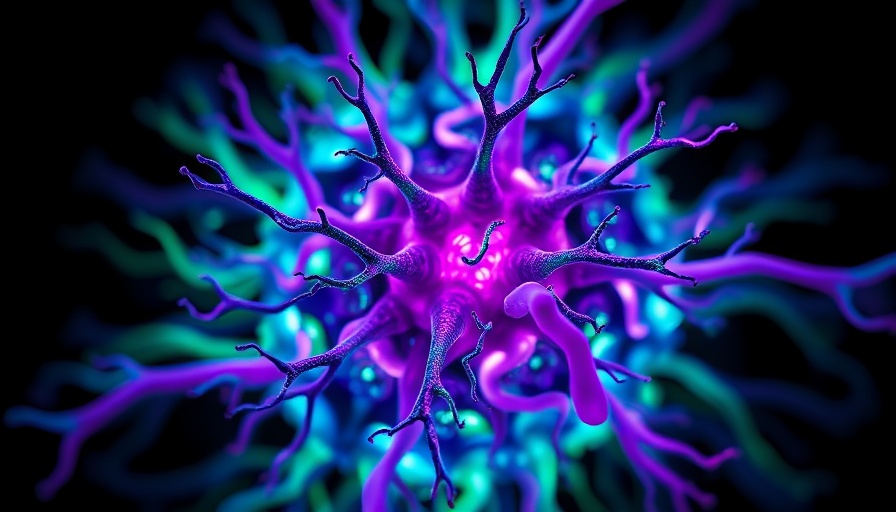
Pioneering Approaches to Understanding Bipolar Disorder
Bipolar disorder is a mental health condition that impacts roughly 8 million people in the U.S., presenting enormous challenges not just for individuals but for the medical community trying to understand it. Recently, researchers have made significant advancements in tackling this complex condition through innovative methods, including the use of lab-grown brain organoids. These tiny models, crafted from patients' blood cells, are shining a light on how bipolar disorder develops and how we might treat it more effectively.
Why Bipolar Disorder Needs Our Attention
Bipolar disorder typically begins in the teenage years, and patients can experience symptoms for almost a decade before receiving a proper diagnosis. This delay in treatment can lead to worsening mental health conditions, impacting daily life and overall well-being. The condition brings extreme mood swings, from manic highs to debilitating lows, significantly affecting a person’s quality of life. It’s imperative for us as a community to understand the nuances of bipolar disorder, especially as we age and consider our mental health within the broader context of aging and well-being.
Innovative Research Transforming Treatment Options
The Bipolar Disorder Seed Grant Program, initiated by the Harvard Brain Science Initiative, exemplifies efforts to fund innovative research projects. With recent funding expansions, this initiative supports research into various aspects of bipolar disorder including genetics, brain circuitry, and even how gut bacteria may influence mental health. Paola Arlotta, the program’s co-director, emphasizes the necessity for funding creative and outside-the-box ideas to develop more personalized therapies for patients suffering from this condition.
Benefits of Targeted Research: Transforming Lives
Projects supported by the seed grant program are not just advancing academic understanding but also opening doors to individualized treatments that have the potential to greatly improve the lives of those affected by bipolar disorder. The integration of findings from these studies can help identify which treatments work best for various subgroups of patients, minimizing the trial-and-error method that often accompanies mental health treatment.
A Call to Action: Awareness and Support
As a community, raising awareness of bipolar disorder can play a key role in ensuring individuals who may be suffering get diagnosed and treated promptly. Fellow community members can also contribute to supporting such initiatives through advocacy, financial support, or even direct involvement in awareness campaigns. Understanding the relevance of these new treatments and studies promotes an environment that fosters mental well-being and support.
Empowering Elders Through Knowledge
With so much advancement in mental health research, it is essential for older adults and their families to stay informed about available treatment options. Engaging in conversations about mental health can alleviate concerns surrounding these conditions and encourage proactive behavior in seeking support or treatment. It’s more than just about surviving; it’s about thriving in your later years.
The encouraging research at Harvard not only underlines the potential for innovative treatment options for bipolar disorder but also emphasizes the vital need for community support in mental health. By making mental health awareness a priority, we can pave the way toward a future where fewer people suffer in silence, and more receive the help they need earlier in life.
To learn more about available resources, support systems, and how you can participate in transforming lives affected by bipolar disorder, consider linking up with local mental health organizations and look for community events focusing on mental health awareness.
 Add Row
Add Row  Add
Add 




Write A Comment